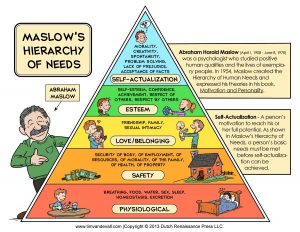There are wounds that never show on the body that are deeper and more hurtful than anything that bleeds.
~Laurell K. Hamilton, Mistral’s Kiss
About a year and a half ago I received some incredibly traumatic news. I was incredibly blessed that my people gathered around me and held me together and up as I processed all that was being unearthed. I was, and am, deeply grateful for those women.
A couple weeks later, I learned that one of my best friends from high school died. And there was the funeral to attend across the state and the grief to feel and sit in and know.
I lost my words. All the pain of those two events, the sense of the world as I thought I knew it shattered. I needed to go inside, to spend as much time and energy and space as I could process and being with those I love most. I stepped back from the world and went in my safe cocoon. I processed and felt and cried and screamed. I listened to music I knew would encourage my tears. I allowed all the tears to shake themselves out of my body as my chest hurt and throat felt raw.
I was reacting to and processing two traumas at once.
And because of the way our bodies work, I was also processing old traumas. While the reason for my tears may have been about recent events, the toxins that were released via those tears have been in my body for a long time.
This is how processing trauma works. Our body doesn’t really know the difference between traumatic events, though our mind does. Our body only knows something is not right, that it needs to be in a heightened reactive state. And so as we process any one specific trauma, our body also is able to process old and other traumas at the same time.
Part of my process of processing traumas, personally, is to cocoon. This is different from isolating (which is something trauma encourages us to do). Cocooning for me is like wrapping myself in a cozy, heavy, blanket. It is warm and safe and quiet. The cocoon is made up of time with those I love, time with my therapist, time in solitude. It is having quiet and having soothing voices. It is being held and being not touched. It is limiting sensory input and output and allowing myself to sit in and feel and be with and yes, process, the multitude of emotions that are swirling in me.
(Not all that) long ago I would not cocoon when I experienced a traumatic event. I would “power through.” I would isolate – telling all those around me I was “fine” as I felt like I was dying. I didn’t reach out. I didn’t feel safe. I didn’t seek comfort. All of this is a normal trauma response. For reasons we don’t yet understand, when we experience trauma, and do not have sufficient reserves of resilience, our mind tells us to stuff it down, act like nothing’s wrong, and even worse, tells us we are all alone, no one would understand, don’t even bother seeking help.
With my own personal work, both trauma specific and not, I’ve been able to come to this place now of no longer isolating, and instead, cocooning. It hasn’t been easy getting here. And I am still in my own process and journey in this work. This work takes time and patience and whole fuck ton of self-compassion.
Because of the self-compassion part I can look back at old patterns and ways of being and not feel shame. Instead I remind myself I was doing the best I could with the tools I had and was able to receive at the time.
This is true for all of us.
I deeply believe each and every one us at any moment are doing the absolute best we can with the tools and resources we have and are able to receive.
Even when we are at our absolute worst and lowest and darkest.
Take that in for a moment.
Even in our darkest and lowest and worst moments, we are doing the best we can with the tools and resources we have and are able to receive.
(Note: sometimes we are not able to receive resources, for any number of reasons, even when they are offered to us. We get to have compassion for this too.)
I have often heard people say (and even said myself a few times) “I wish I had started this work [of self-awareness, body-centered mindfulness, and or trauma processing] earlier/when I was younger/a long time ago.”
A truth is, that we couldn’t have started this work until we did. For whatever reasons we didn’t have the right resources to move into this work.
We didn’t have enough of our basic needs being met.

Dr. Abraham Maslow developed a theory that is called the Hierarchy of Needs. At the base is food, water, shelter, rest, the ability to breathe and eliminate waste. If these basic needs aren’t met then we can’t focus on the second “level” which is safety – being in an environment where your body feels physically safe, you have a steady income, you have resources you can rely on including friends and family, you have a relatively healthy body.
The “middle level” in the hierarchy is love and belonging. I feel this is important to note. I’ve seen a meme several times over the years that says in essence “If you don’t love yourself, no one else can/will love you.” According to Maslow, this is absolutely incorrect – we actually need to feel loved and cared for and have a sense of belonging somewhere before we can move on to “self-esteem” or self-love. We need our people, our community. We need to feel like we are a part of something. Sometimes we are able to find this sense of belonging from our parents or siblings, and sometimes not. Sometimes we find this at church or school, sometimes not. Sometimes we find it in our social circles, and sometimes not. It honestly doesn’t matter where we find it, only that we do. (Also, this is what attachment theory tells us – we need to feel and be loved in order to love ourselves.)
This is where that “deeper” work, trauma related, self-awareness, body-centered mindfulness, and our ability to “do the work” comes into play. We actually can’t do that work UNLESS we have our other basic needs met – one of which is having a sense of belonging and being loved.
My truth is I would not have been able to start any of my personal work any earlier than I started it. Particularly my own trauma work. I needed to have my basic needs met, have consistent and reliable access to food and shelter, to have a sense of safe-enoughness, to feel loved and that I belong enough, and then also to love myself enough – to be able to come to the place of feeling that I do matter, that my life matters, and that I am worthy of happiness and to not continue to suffer all the physical and psychological and emotional impacts of my own trauma history.
Frankly, I didn’t get to that place, I didn’t have all those needs met, until relatively recently, in the last few years. And so, even if I had gone into trauma therapy prior to that, it likely would not have helped as much as it is now, and also frankly, I likely wouldn’t have stuck with it.
This “deeper work” isn’t necessary for our survival. The first three tiers of the hierarchy are. We honestly don’t need to love ourselves or be “self-actualized” in order to survive on this planet.
And.
For those of us who have the privilege of having those three basic needs met, what would our lives be like if we were able to get the fourth and fifth met? If we did the work of processing our own lived experience trauma, our ancestral trauma that lives in our DNA, our cultural trauma that feeds itself every day? What would that even be like? How would our lives be different?
For me, I know how my life is different. I also see the shifts in the women who gather in my circles and who I work with individually. I know, personally, how coming home to my own body changed every aspect of my life. I know, personally, how doing body-focused trauma therapies have opened up aspects of my Self and my life I thought were closed away forever.
It hasn’t been easy. It has certainly more often than not, been really fucking hard.
And yet, for me, and it seems for others who are able to do this work, it has been so fucking worth it.
…
Did you enjoy reading this? It was originally written for my weekly newsletter in the summer of 2017; I edited it for publication here. If you’d like to receive my weekly emails, which includes essays like one, you can fill out the form on this page.
